Sarah Cortez: I Think of A Blank Page as My Best Friend
Sarah Cortez: Una página blanca es mi mejor amiga
Debra D. Andrist
Sarah Cortez (SC) writes about her life in Houston–and so much more. Home: Growing Up Hispanic in Houston, her 2012 memoir, published by Texas Review Press, was awarded Honorable Mention in both the Los Angeles Book Fest and the Southwest Book Awards. Her 2013 book of poetry about police work in Houston, Cold Blue Steel, also published by Texas Review Press, has garnered rave reviews. A member of the Texas Institute of Letters, Sarahhas authored two acclaimed poetry collections based on her own experiences as a beat police woman in Houston and has won the PEN Texas literary award in poetry. She also edited Urban Speak: Poetry of the City and Windows into My World: Latino Youth Write Their Lives, winner of the 2008 Skipping Stones Honor Award, as well as Hit List: The Best of Latino Mystery, Indian Country Noirand You Don’t Have a Clue: Latino Mystery Stories for Teens, which was short-listed for the 2012 International Latino Book Awards. Kirkus Reviews hailed the anthology as “a consistent, well-crafted collection,” while the starred review in Booklist says the book “presents stories that are notable both for their authenticity and for their language. In 2013, her edited volume, Our Lost Border: Essays on Life Amid the Narco-Violence, co-edited with Sergio Tronosco, from Arte Público Press was released.
***
Sarah was interviewed by Dr. Debra D. Andrist (DDA), Chair of Foreign Languages/Professor of Spanish, Sam Houston State University, who has known Sarah for nearly twenty years—as Sarah has agreed to participate in numerous professional conference panels that Deb has organized over the years and as an enthusiastic presenter many times at university events Deb has organized at the University of St. Thomas in Houston, when Deb was on the faculty there, and in Huntsville at Sam Houston State University, where she met Paul Ruffin of Texas Review Press, one of Sarah’s publishers.
DDA: Sarah, you’ve followed quite an exciting and varied personal and professional route to where you are now; please summarize your personal/employment “history/journey” to being an award-winning author and successful teacher of writing, known not only locally in Houston but nationally and internationally!
SC: Both my employment path and personal path to where I am today with my writing, editing and teaching careers have been circuitous. In fact, if you look at my university degrees, including two advanced degrees, you could draw the conclusion that I am a living monument to over-education. And none of those degrees are in creative writing or the subjects of English or English literature.
My history includes a successful corporate career of 14 years and a policing career of twenty years. However, one of the most precious of the dreams that has sustained me since a young age has been the desire to be a published writer. And, I should add, not a self-published writer, but a writer published by traditional publishers with sterling reputations and high standards.
Certainly, I have studied in various one-week workshops with some excellent teachers through the years and I did have two excellent semesters with fiction teachers or poets early on in night courses. But most of what I have learned is self-taught. Perhaps this is what has garnered me such an excellent reputation as a teacher of writing. You see, I have had to teach myself, so I understand in an intimate way the writer’s psyche, the writer’s challenges, and the writer’s methods of mindful self-editing that must be in place for the successful professional writer.
Now, I thank my lucky stars that I did not attend an MFA program in creative writing. It can be remarkable how much isn’t taught in those two or three-year programs—there isn’t time.
DDA: Please tell us about your educational and intellectual preparation for writing and teaching writing.
SC: Again, with the hindsight that is always 20-20, it appears that almost everything in my academic and professional lives has been in preparation for the teaching and editing that I do now (and have done for years). But, of course, it never seemed that way at the time.
I was lucky enough to attend excellent schools that stressed high performance. We spent hours learning how to diagram sentences, punctuate properly, master vocabulary, and translate Latin. (My first graduate degrees is in Classical Studies—the translation of Greek and Latin and the learning of those ancient cultures.)
Let’s see—intellectual preparation. Well…learning to use your mind really is an art unto itself, isn’t it? The schools I attended until Rice University were private, Catholic schools where the majority of teachers were Dominican nuns. Let me tell you—those fine, smart, upright women were the match of anyone I’ve ever met not only on the intellectual plane. They were fabulous role models for the benefits of learning to use the logical mind and the careful tending of the spirit.
Perhaps, it would good here to mention that one of the great rivers that has run throughout my entire life is the paying attention to detail. I would guess that this tendency is part of my nature, but it is certainly a skill that can be bettered through training and diligence. To be a good writer and editor (as well as police officer), you have to pay attention to details. You also must be intuitive and skillful enough to be able to sense and articulate the “whole” that the details add up to.
DDA: Sarah, you’ve always been a teacher in so many ways and are now guiding other writers in workshops and master classes! Please tell us about some of your experiences as a teacher.
SC: I think teaching has always been in my blood. After all, my mother’s fondest dream was to be a teacher–a dream she realized after taking eight years to complete her first college degree because her farming family would work until they saved enough money for her to go to college one semester at a time. Then, she would return to the farm and everyone in the family would work until they saved enough money to send her back for another semester. See how intense was their commitment to education and to her future? They did this for each daughter and son in the family.
I love teaching because I know what a valuable difference a teacher can make. Here’s one of my amazing moments in teaching. Years ago at UH in a memoir creative writing class I had two students who were engaged to get married to one another and spent most of the semester giggling together in the back row. I didn’t think they even liked the class or learned too much. Years later I received a communication from one of them and found out that of all the college classes she had had that one class was the one to set her on fire–both in her own writing ability and in her own career as a later teacher and librarian.
I think that as a good teacher you have to be willing to plant many seeds and never know if any of them will sprout. You have to plant the seeds because it is the right thing to do rather than to try to gain anything for yourself in a selfish way. So many of my students have now published books, won awards, and gone on to teach writing themselves. I am so proud of them!
It is also important for teachers to model appropriate ethics in the classroom. I’ve seen a lot of ethical abuses in creative writing graduate classes and even in community writing classes sponsored by non-profits. So, I’m careful to follow copyright law, not talk badly about other faculty or writers, give credit for ideas to the people who generated them, and, most importantly, not allow students to engage in humiliating, bullying tactics toward one another. As someone who takes a lot of pride in being a professional teacher, I know it is important to follow professional guidelines in classroom behavior.
DDA: What do you like best about writing and about teaching writing? Why? Least about each? Why?
SC: About writing, I like the careful teasing out of true meaning in the form I am writing in—poetry, fiction, essay, etc. (I’ve also written textbook chapters, prayers, book reviews, essays, magazine articles, journalistic pieces for newspapers, etc.) Sometimes it takes me years to finish a poem, to get it exactly right. When I’m working on a piece of writing, I am in the Never-Never Land of pure creation. What a joy!
Each form has its own demands, its own way of setting up and fulfilling the expectations of the reader. I find it endlessly fascinating to work with writers—in the classroom, as a freelance editor, as an editor for the anthologies I propose—because in understanding the diction, style, voice, expectations, skill level of each writer, I also am privileged to enter that writer’s internal space of creation. I say “privileged” here, not only because entry is gained by understanding, which engenders respect, but also because entry is unique to each writer. In other words, I (as an editor or teacher) have to be preternaturally intuitive about how to best work with each writer. I enjoy this challenge.
There have only been a few moments in my many years of editing/teaching that have made me think “I will never do this again.” In brief, one moment came after I had spent hours crafting a tactful email to a writer about one point in her short story that desperately needed to be revised. Her disastrous choice was to send a reply email that attacked me personally, then listed her past awards, then (even worse) told me why I wasn’t qualified to edit her writing. I found out later that she is known in the industry to be a mediocre writer with a hot temper and immature behavior towards anyone who doesn’t bow down before her.
DDA: Do you ever get the proverbial “writer’s block?” What do you do to move on?
SC: I think writer’s block is a huge myth. People buy into the myth, then psyche themselves out of enjoying the freedom of the blank page.
Perhaps, people buy into the myth of writer’s block because they lack confidence in their ability to revise. It’s very easy to feel intimidated if you think that whatever you write has to be perfect the first time. Although, that’s sheer craziness.
I think of the blank page as my best friend. It will accept whatever I write; it will record any and all of my moments—the dark and the luminescent, and everything in between.
Many experienced teachers of creative writing often say that the true mark of a professional writer is that he/she can revise his work. I recall the wonderful teacher I had in my first semester of fiction writing who said that the true purpose of all writing classes was to teach people how to self-edit. In other words, the goal of someone learning to write in a particular form is to learn how to make his writing better and better, to see the flaws, to understand the rhythms and flow of not only ideas but also the mechanics of structure, to pick the “perfect” vocabulary, the “perfect” title, and on and on.
DDA: In this same vein of sharing your expertise, one of your upcoming projects is to (again) participate in the Houston Hispanic Forum Career & Education in February 2015 as a panelist. Please tell us about this project and why this part of your teaching, outreach to young Latinos, is so near and dear to your heart, whether writing and editing literature for them or overtly offering your expertise in such projects?
SC: It’s important for young Hispanics to see role models who aren’t criminals, who aren’t engaged in illegal activity, who aren’t losers. You know that violence has its own seductive power. That’s part of why those of us, such as police officers and soldiers, who have stood up and continue to stand up against illegal criminal activity, must be willing to talk to young people, to encourage them in their pursuit of literacy in the English language, to affirm their belief in honor and integrity, to show them the value of discipline, and the focus of a mission statement.
I’ve taught in high schools where there’s a lot of kids in gangs. And you know what? The kids who want a better life through attending college and working hard, those kids are more savvy than adults in identifying the gang-bangers as “losers.”I like to encourage everyone I work with, young and old, to pursue excellence. Unfortunately, this has become an overworked concept that is given much lip service and sometimes too little real punch in daily life. Each person must decide many times a day whether to do a “good job” at a minor task or to do a sloppy job. This is an individual choice that comes from within. Those who can do small things well generally will do likewise for so-called “important” jobs. It is the classroom teacher’s job to model excellence in all that she does so that the student learns this attitude. It is also the teacher’s job to point out poor performance.
DDA: And, finally, please tell us what you’re working on now—and your next project after.
SC: My most recent deadline was for an essay in response to an article written by Texas Monthly writer, Skip Hollandsworth. I wrote a lyric essay that incorporates the voice of the buried bones of a victim of serial killers Dean Coryll and Elmer Wayne Henley along with my narrative of my own experiences on Lower Westheimer during the time period of the early seventies when these horrific murders occurred. This essay will be published by Lamar University Press in a book of essays entitled A Shared Truth, edited by Cheryl Clements.
My next published book will be out this fall from Texas Review Press. It will be an anthology entitled Goodbye, Mexico: Poems of Remembrance. Its goal is to give voice to those poets who wish to remember Mexico before the ravages of narco-violence and the destruction of the middle class there. Poets of national stature will sing their poetry next to lesser-known poets in this volume that is shaping up as an eloquent celebration of Mexico.
After that…well, I have several anthologies in the works and a book of my own essays.
Translated by Debra Andrist
Sarah Cortez (SC) escribe sobre su vida en Houston—y mucho más. Home: Growing Up Hispanic in Houston, su autobiografía, publicada en 2012 por el Texas Review Press, ganó la Mención de Honor en Los Angeles Book Fest y los Southwest Book Awards. Su libro de poesía sobre ser policía en Houston, Cold Blue Steel, publicado en 2013 por Texas Review Press, fue reconocido como un gran éxito por los críticos. Socia del Texas Institute of Letters, Sarah ha publicado dos colecciones de poesía basadas en sus propias experiencias como policía en Houston y fue premiada con el PEN Texas Literary Award in Poetry. Redactó Urban Speak: Poetry of the City and Windows into My World: Latino Youth Write Their Lives, que ganó el Skipping Stones Honor Award en 2008, Hit List: The Best of Latino Mystery, Indian Country Noiry You Don’t Have a Clue: Latino Mystery Stories for Teens, este último nominado para los International Latino Book Awards en 2012. Kirkus Reviews caracterizó la antología como “una colección consistente y bien hilvanada,” mientras que la reseña en Booklist dijo que el libro “presenta historias notables por su autenticidad y lenguaje”. Su libro redactado, Our Lost Border: Essays on Life Amid the Narco-Violence, con Sergio Tronosco de Arte Público Press se publicó en el 2013.
***
Presentamos aquí una conversación con la autora y la Dra. Debra D. Andrist (DDA), Directora de Foreign Languages/Profesora de Español, Sam Houston State University. Las dos se conocieron hace 20 años porque Sarah ha presentado en varios eventos organizados por Debra en congresos profesionales y en la University of St. Thomas/Houston y en Sam Houston State University donde Sarah conoció a Paul Ruffin de la Texas Review Press, una de las casas editoriales que ahora publica sus libros.
DDA: Sarah, hasta el momento tu ruta personal y profesional ha sido muy buena y variada; ¿Nos podrías hablar de tu historia/viaje como autora premiada y maestra reconocida no solamente en Houston sino internacionalmente?
SC: Mi camino entre mi vida personal y profesional ha llevado caminos indirectos. De hecho, si se observan mis dos títulos universitarios avanzados, se podría deducir que cuento con una sobreeducación. Y ninguno de éstos trata ni de escribir, i del lenguaje, ni de la literatura.
Mi historia incluye una carrera exitosa en varias corporaciones durante 14 años y otra como policía que lleva 20 años. Pero uno de mis sueños más queridos que me ha sostenido desde la juventud ha sido el deseo de ser una escritora publicada. Y, debiera añadir, no una publicada por sí misma sino una publicada por las casas editoriales tradicionales con reputación respetada y altos criterios.
Claro, durante estos años he estudiado con algunos maestrosmuy buenos y hace mucho pasé dos semestres tomando cursos por la noche con unos maestros de ficción o poetas. Pero la mayoría de lo que aprendí es autoenseñada. Tal vez sea esto lo que me ha ganado la reputación de maestra de escritura porque tuve que aprender por mi misma. Por eso, entiendo muy íntimamente la mente del escritor, los desafíos y los métodos de escritura para poder salir bien librado como un escritor profesional.
Ahora, me alegro de no haber asistido a ningún programa MFA (maestría de escritura). Se nota la cantidad de cosas que no se puede enseñar en programas de dos o tres años por falta de tiempo.
DDA: ¿Podrías detallar tu preparación educativa e intelectual para la carrera como escritora y su enseñanza?.
SC: Viendo claramente hacia atrás, me parece que todo en mis vida académica y profesional me ha preparado para enseñar y escribir como lo hago ahora.. Pero nunca fue tan obvio como lo es ahora.
Tuve la suerte de asistir a unas escuelas excelentes que exigían resultados altos. Pasábamos horas aprendiendo cómo diagramar las frases, usar la puntuación correcta, manipular el vocabulario y traducir al latín. (Mi primer título trata de los estudios clásicos—la traducción del griego y del latín y el conocimiento de estas culturas antiguas.)
Con respecto a la preparación intelectual, aprender a pensar es un arte especial ¿no? Antes de asistir a Rice University, asistí a escuelas católicas particulares de monjas dominicanas. Pude darme cuenta de que estas mujeres tan decentes, inteligentes y honestas fueron tan buenas como las mejores a quienes he conocido no solo intelectualmente. Eran modelos de vida para aprender a usar la mente lógica y a cuidar el espíritu.
Tal vez sea bueno mencionar que uno de los grandes cauces que atravieza mi vida es el poner atención a los detalles. Puede ser que esta tendencia sea parte de mi carácter pero es absolutamente una destreza que se puede mejorar por el entrenamiento y la diligencia. Para poder ser un buen escritor y un buen redactor (además de policía), es necesario poner atención a los detalles. Se debe ser intuitivo y tener la destreza para poder experimentar y describir todo lo que resulta de los detalles.
DDA: Sarah, ¡siempre has sido maestra de tantísimos talentos y ahora enseñas a otros a dar talleres y clases! Cuéntanos algunas de tus experiencias como maestra.
SC: Creo que enseñar siempre ha sido algo integral para mí misma porque el sueño más indulgente de mi madre fue el de ser maestra—un sueño que realizó después de pasar ocho años de esfuerzos para graduarse con su primer título porque su familia granjera trabajaría hasta ganar bastante dinero para que ella pudiera asistir a la universidad semestre tras semestre. Después de cada semestre regresaría a la granja y todos trabajarían hasta ahorrar el dinero suficiente para enviarla a estudiar otra vez. ¿Se entiende su compromiso con la educación y al futuro de ella? Ellos hicieron esto para cada hijo de la familia.
Amo enseñar porque entiendo el valor de la diferencia que un maestro puede hacer. Uno de mis mejores momentos al enseñar fue hace años en una clase de escritura creativa de la Universidad de Houston, Dos de mis estudiantes eran novios y pasaban la mayoría del semestre riéndose juntos sentados en la fila más distante. Nunca pensé que les gustara la clase ni que estuvieran aprendiendo mucho. Años después recibí un mensaje de uno de ellos donde me decía que de todas las clases universitarias que tomó ella, la mía fue la que la inspiró a trabajar en su propia escritura y en su carrera de maestra y bibliotecaria.
Creo que, como buen maestro, se debe tener la voluntad de plantar muchas semillas si saber si alguna de ellas crecerá. Se debe plantar porque es lo correcto en lugar de intentar ganar algo para uno mismo por razones egoístas. Muchos de mis estudiantes ya han publicado libros, han sido premiados y han llegado a ser maestros de la escritura. ¡Estoy muy orgullosa de ellos!
También es importante que los maestros sirvan de modelos de ética. He visto muchos abusos éticos en las clases de maestría de escritura creativa y aún en las clases que son patrocinadas por organizaciones sin fines de lucro. Por eso, sigo las leyes sobre los derechos de autor, no hablo mal de los otros maestros ni escritores, doy crédito a las ideas que surgen de allí y, más importante, no permito que los estudiantes se humillen mutuamente ni usen las tácticas de intimidación. Como una persona que se enorgullece de ser profesional, sé que es importante seguir las directrices profesionales en el comportamiento en la clase.
DDA: ¿Qué te gusta más sobre escribir y enseñar la escritura? ¿Por qué?
SC: Me gusta el acto de buscar cuidadosamente el significado verdadero del género en lo que escribe—poesía, ficción, ensayo, etc. (También he escrito capítulos de libros de texto, oraciones, reseñas de libros, ensayos, artículos para revistas, piezas periodísticas para periódicos, etc.) De vez en cuando, me toma años terminar con un poema, para poder perfeccionarlo. Cuando trabajo en una obra, estoy en la tierra del nunca jamás de la pura creatividad. ¡Qué alegría!
Cada género tiene sus propios requisitos, su propia manera de establecer y de cumplir las expectativas del lector. Me es fascinante trabajar con escritores—en la clase, como una redactora independiente o para las antologías que propongo—porque al entender la dicción, el estilo, la voz, las expectativas, el nivel de destreza de cada escritor, tengo el privilegio de entrar en el espacio interno de la creación de este escritor. Digo “privilegio” en esta instancia porque no solamente se gana la entrada por el entendimiento, que engendra el respecto, sino porque la entrada es única para cada escritor. En otras palabras, yo (redactora o maestra) tengo que ser intuitiva para buscar la mejor manera de trabajar con cada individuo. Me encanta este desafío.
Pocas veces he pensado: “Nunca más enseñaré.” Una ocasión sin embargo, pasé horas creando un mensaje electrónico muy diplomático a una escritora sobre un punto en su cuento que desesperadamente necesitaba revisiones. Decidió entonces mandarme una respuesta en la que me atacaba personalmente, enumerando varios de sus premios obtenidos en el pasado. Además me dijo que no contaba con las calificaciones para poder redactar su trabajo. Supe después que es conocida en la industria como una escritora mediocre de mal genio y de comportamiento inmaduro hacia los que no le hacen reverencias.
DDA: ¿Sufres del “bloque” proverbial de los escritores de vez en cuando? ¿Qué haces para continuar?
SC: Creo que el “bloque” es un mito enorme. La gente lo acepta, entonces les causa el daño de no disfrutar de la página blanca
Quizá la gente acepte el mito del “bloque” porque les falta la confianza en su abilidad de revisar. Es muy fácil sentirse intimidado si piensa que lo que se escribe tenga que ser perfecto al principio. Pero eso es pura locura..
Pienso en la página blanca como mi mejor amiga. Aceptará cualquier cosa que escribo, guardará cualquieres y todos mis momentos—los oscuros y los luminiscentes y todos los entre ellos.
Muchos maestros con experiencia en escribir la obra creativa frecuentemente decían que la característica verdadera de un escritor profesional es que puede revisar su obra. Recuerdo a un maestro mío en el primer semestre de escribir la ficción que dijo que el propósito verdadero de todas las clases de escritura fue enseñarle a la gente cómo autoredactar. En otras palabras, la meta de alguien que aprende a escribir en un género específico es aprender cómo se mejora la escritura más y más, cómo reconocer los errores, cómo entender los ritmos y el corriente de no solamente las ideas sino la mecánica de la estructura, cómo escoger el vocabulario perfecto, el título perfecto, etc.
DDA: Siguiendo con este tema de compartir tu experiencia, uno de tus futuros proyectos es dar una ponencia (otra vez) en el Día de Carreras y Educación del Houston Hispanic Forum en febrero de 2015. Favor de detallar este proyecto y por qué quieres tanto esta parte de tu enseñanza a los jóvenes latinos, o que sean escribir y colecionarles literatura u ofreciendo tu experiencia directamente en tales proyectos.
SC: Es importante que los jóvenes hispanos vean modelos de comportamiento que no son criminales, que no participan en las actividades ilegales, que no son fracasados. ¿Sabes que la violencia tiene su propio poder seductivo? Es parte del por qué algunos de nosotros, como los policías y los soldados, que tomamos la decisión de continuar oponiéndose a la actividad ilegal de los criminales, debemos hacer voluntariado para hablar con los jóvenes e inspirarlos a continuar con sus habilidades en el inglés, de afirmar su creencia en el honor y la integridad, de mostrarles el valor de la disciplina y el enfoque en una misión clara.
Antes enseñaba en escuelas dónde hay muchas pandillas. Y ¿sabes? Los que quieren una mejor vida asistiendo a la universidad y trabajando mucho, ésos son mucho más listos que los adultos que identifican a los pandilleros como “fracasados.”
Me gusta inspirar a todos con los que trabajo, jóvenes y ancianos, a perseguir la excelencia. Desafortunadamente, este concepto ha llegado a ser algo tan repetido que ha perdido su fuerza en la vida cotidiana. Cada persona debe estar decidiendo constantemente hacer un buen trabajo o uno mediocre. Es una decisión que surge de dentro. Los que pueden hacer los quehaceres bien generalmente hacen lo mismo con los trabajos “más importantes”. Es la responsabilidad del maestro en la clase: servir de modelo de excelencia en todo lo que hace para que el estudiante aprenda esta actitud. También es la responsabilidad del maestro avisarles de trabajos mediocres.
DDA: ¿En qué te encuentras trabajando ahora y cuál es tu futuro proyecto?
SC: Recientemente escribí un ensayo respondiendo a un artículo escrito por Skip Hollandsworth de la revista, Texas Monthly. Escribí otro ensayo lírico que incorpora la voz de los huesos enterrados de una víctima de los asesinos seriales, Dean Coryll and Elmer Wayne Henley, junto con mi narrativa de mis propias experiencias en Lower Westheimer (calle principal del centro de Houston) durante la época de los setentas cuando ocurrieron estos asesinatos tan terroríficos. Lamar University Press publicará este ensayo en un libro de ensayos titulado, A Shared Truth, redactado por Cheryl Clements.
Mi próximo libro publicado saldrá este otoño en Texas Review Press. Será una antología titulada Goodbye, Mexico: Poems of Remembrance. Su meta es darles voz a los poetas que quieren recordar México antes de los daños de la narcoviolencia y la destrucción de la clase media allá. Unos poetas de reconocimiento nacional cantarán sus poesías al lado de los menos conocidos en este tomo que está resultando ser una celebración elocuente de México. Después . . . pues, tengo varias antologías que aún estoy trabajando y un libro de mis propios ensayos.


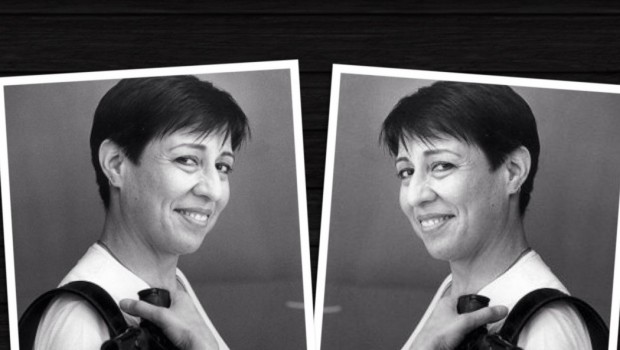

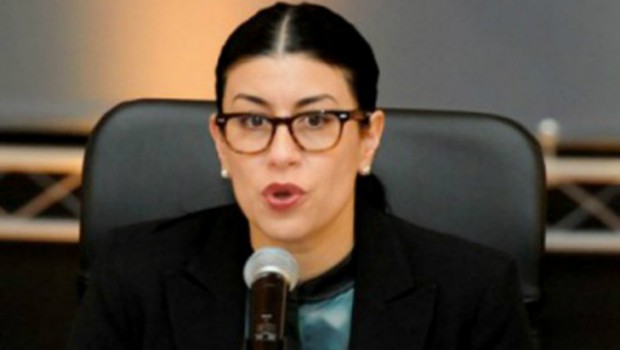
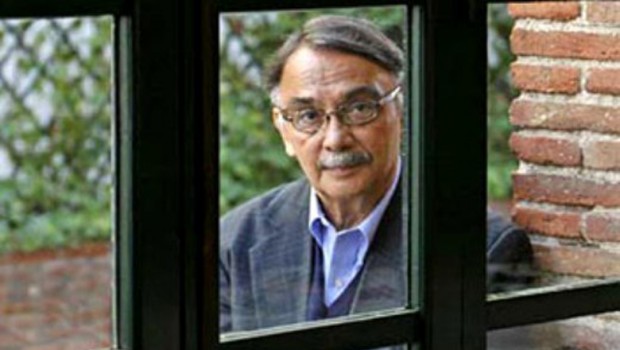
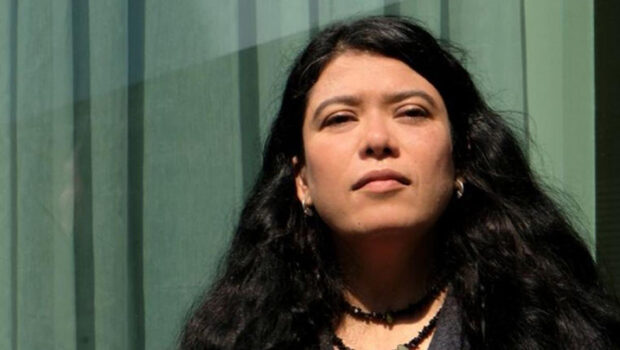
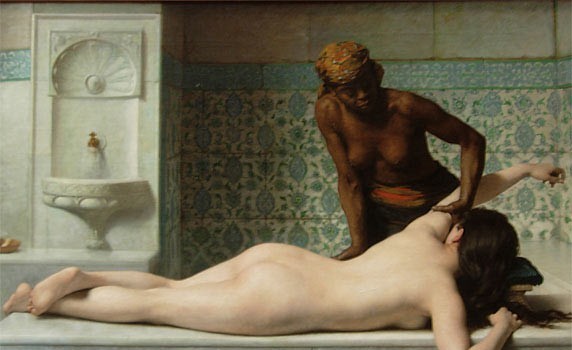
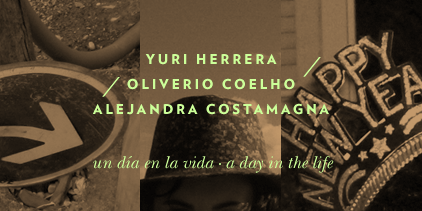
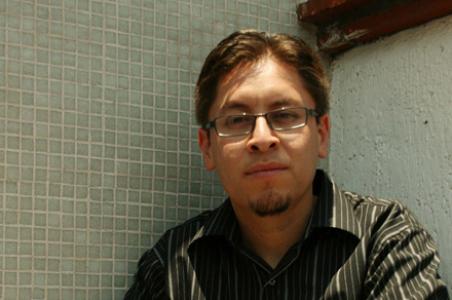

I can certainly see your enthusiasm within the work you write, Sarah.
The world hopes for more passionate poetss such as
you who aren’t afraid to put together so many subjects. Always follow your heart.
What a beautiful reflextion
Excellent article you have here buut I was curious if this author has any other publication. Loved it!
Loved it!!